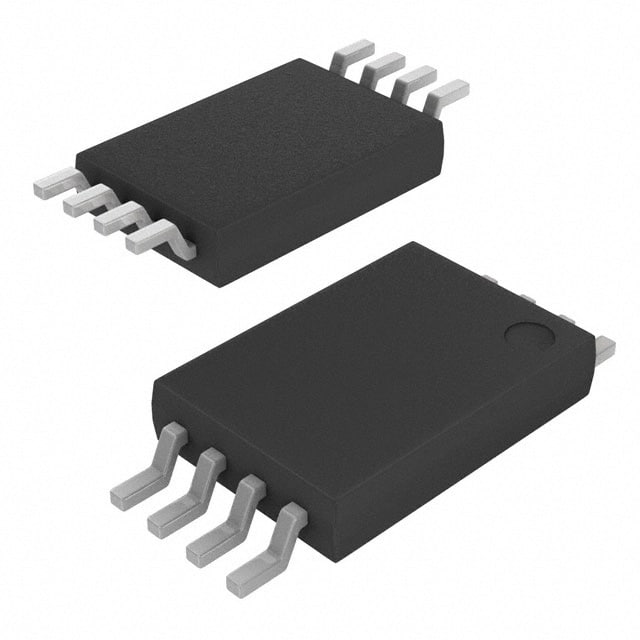Consulte las especificaciones para obtener detalles del producto.

CY25812ZXCT
Overview
Category
CY25812ZXCT belongs to the category of integrated circuits (ICs).
Use
It is commonly used in electronic devices for various applications.
Characteristics
- High performance and reliability
- Low power consumption
- Compact package size
- Wide operating temperature range
Package
CY25812ZXCT is available in a compact surface mount package.
Essence
The essence of CY25812ZXCT lies in its ability to provide efficient and reliable electronic circuitry for a wide range of applications.
Packaging/Quantity
CY25812ZXCT is typically packaged in reels or tubes, with varying quantities depending on the manufacturer's specifications.
Specifications and Parameters
- Input voltage range: 2.7V - 5.5V
- Operating temperature range: -40°C to +85°C
- Output current: up to 100mA
- Package dimensions: 3mm x 3mm
Pin Configuration
For detailed and complete pin configuration information, please refer to the datasheet provided by the manufacturer.
Functional Characteristics
CY25812ZXCT offers the following functional characteristics:
- Voltage regulation
- Current limiting
- Overtemperature protection
- Short-circuit protection
Advantages and Disadvantages
Advantages
- High performance
- Reliable operation
- Low power consumption
- Compact size
Disadvantages
- Limited output current capacity
- May require additional external components for certain applications
Applicable Range of Products
CY25812ZXCT is suitable for a wide range of electronic devices and applications, including but not limited to: - Mobile phones - Tablets - Portable media players - Wearable devices - IoT devices
Working Principles
CY25812ZXCT operates based on the principles of voltage regulation and current limiting. It ensures stable and reliable power supply to the connected electronic components.
Detailed Application Field Plans
CY25812ZXCT can be used in various application fields, such as: 1. Power management in mobile devices 2. Battery-powered systems 3. Portable audio devices 4. IoT sensor nodes 5. Wearable health monitoring devices
Detailed Alternative Models
Some alternative models to CY25812ZXCT include: - CY25813ZXCT - CY25814ZXCT - CY25815ZXCT - CY25816ZXCT - CY25817ZXCT
5 Common Technical Questions and Answers
Q: What is the maximum input voltage for CY25812ZXCT? A: The maximum input voltage is 5.5V.
Q: Can CY25812ZXCT handle short-circuit conditions? A: Yes, it has built-in short-circuit protection.
Q: What is the typical output current of CY25812ZXCT? A: The typical output current is up to 100mA.
Q: Is CY25812ZXCT suitable for automotive applications? A: No, it is not specifically designed for automotive use.
Q: Does CY25812ZXCT require external components for operation? A: It may require additional external components depending on the specific application requirements.
This encyclopedia entry provides an overview of CY25812ZXCT, including its category, use, characteristics, package, specifications, pin configuration, functional characteristics, advantages and disadvantages, applicable range of products, working principles, detailed application field plans, alternative models, and common technical questions and answers.

